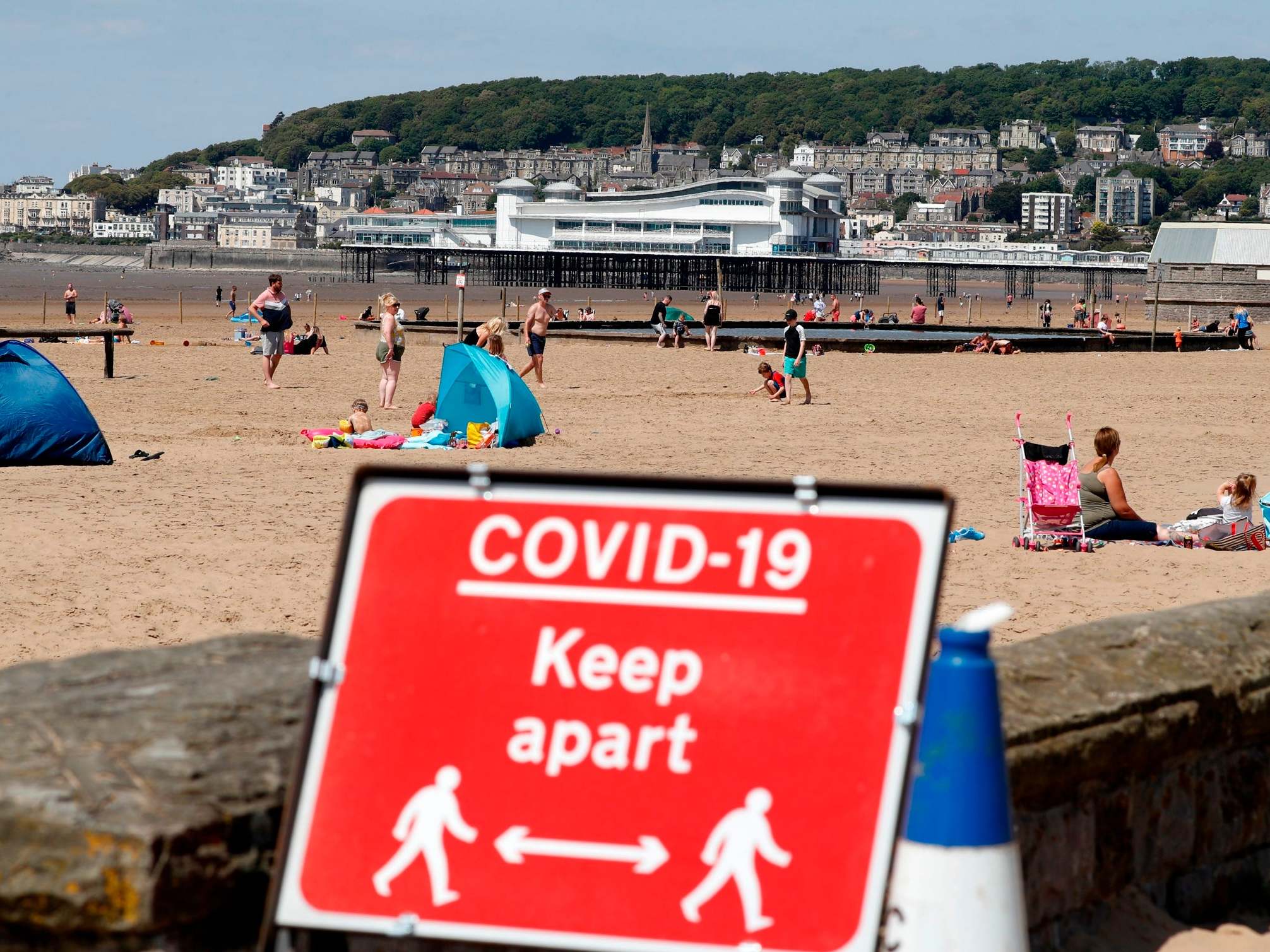
Downing Street has issued an appeal to the public to maintain two-metre social distancing rules, amid widespread reports of crowded beaches and parks as restrictions are eased.
Boris Johnson’s official spokesman insisted that the relaxation of lockdown coming into effect today was “very gradual and cautious” and rejected suggestions that the government was moving ahead of scientific advice.
He confirmed that the Joint Biosecurity Centre’s Covid-19 alert level remains at 4 – meaning the virus is in general circulation, with transmission high or rising exponentially – but said it was “moving down towards” the safer level 3.
Download the new Independent Premium app
Sharing the full story, not just the headlines
The spokesman was unable to give details of the numbers of people contacted and asked to isolate themselves under the new “test and trace” system, which the government regards as essential to keep infections under control. And he had no date for when an app designed to track the contacts of people testing positive for coronavirus would be ready for national rollout, following its trial on the Isle of Wight.
But he made clear that the authorities stand ready to reimpose restrictions at a local level if signs emerge of new outbreaks of coronavirus.
“We all need to play our part and it is important that people continue to follow the social distancing guidelines and stay two metres apart,” said the PM’s spokesman.
“It is only because of the hard work of the British public that we have been able to ease the social distancing measures in a very cautious and gradual way. We will only continue to keep the virus under control if people continue to follow the social distancing rules.”
Asked about the warning from the Association of Directors of Public Health that lockdown measures were being eased too early, Mr Johnson’s spokesman insisted that the scientific consensus was that the changes being made would not push the rate of reproduction of coronavirus – known as R – above the crucial level of one, so long as the test-and-trace system works and people continue to socially distance.
“We have worked to gradually and safely ease the lockdown measures,” he said. “The consensus from the scientists is if test-and-trace is up and running and the public follow the social distancing guidance then it’s unlikely the measures will push the R above one.”
The PM’s spokesman defended the decision to ease restrictions for the extremely vulnerable people who have been shielding from coronavirus since March.
The latest news on Brexit, politics and beyond direct to your inbox
“We’ve done this in a very cautious way and in accordance with medical and scientific advice,” he said.
“The Department for Health and Social Care engaged with a number of groups including the Royal College of GPs, British Medical Association and patient groups, such as Asthma UK, and the deputy chief medical officers and Public Health England approved the new advice.”
Downing Street appeared to be backing away from the plan for all primary school pupils in England to have at least a month in the classroom before the summer, saying that the proposal – set out in last month’s recovery plan – was “under review”.
No 10 signalled support for the call from Children’s Commissioner Anne Longfield for children to be offered catch-up tuition over the summer.
“We are (looking at) what additional measures may be required to ensure every child has the support they need, including over the summer,” said the PM’s spokesman.
The spokesman said “the majority” of English primaries were expected to open to more children this week, but indicated that headteachers were being granted discretion to move more slowly, saying: “We fully understand that there will be some schools who feel that they need more time to prepare.”
“This is the start of a cautious and phased return during which attendance will grow over time,” the spokesman said.
Asked what Boris Johnson’s message to parents would be, the spokesman said: “We have only taken this step because we believe it is safe to do so. The medical evidence considered by Government scientists has been published.
“It’s hugely important that children do have the opportunity to get back into school and to learn but we are doing this in a very cautious and safe way.


